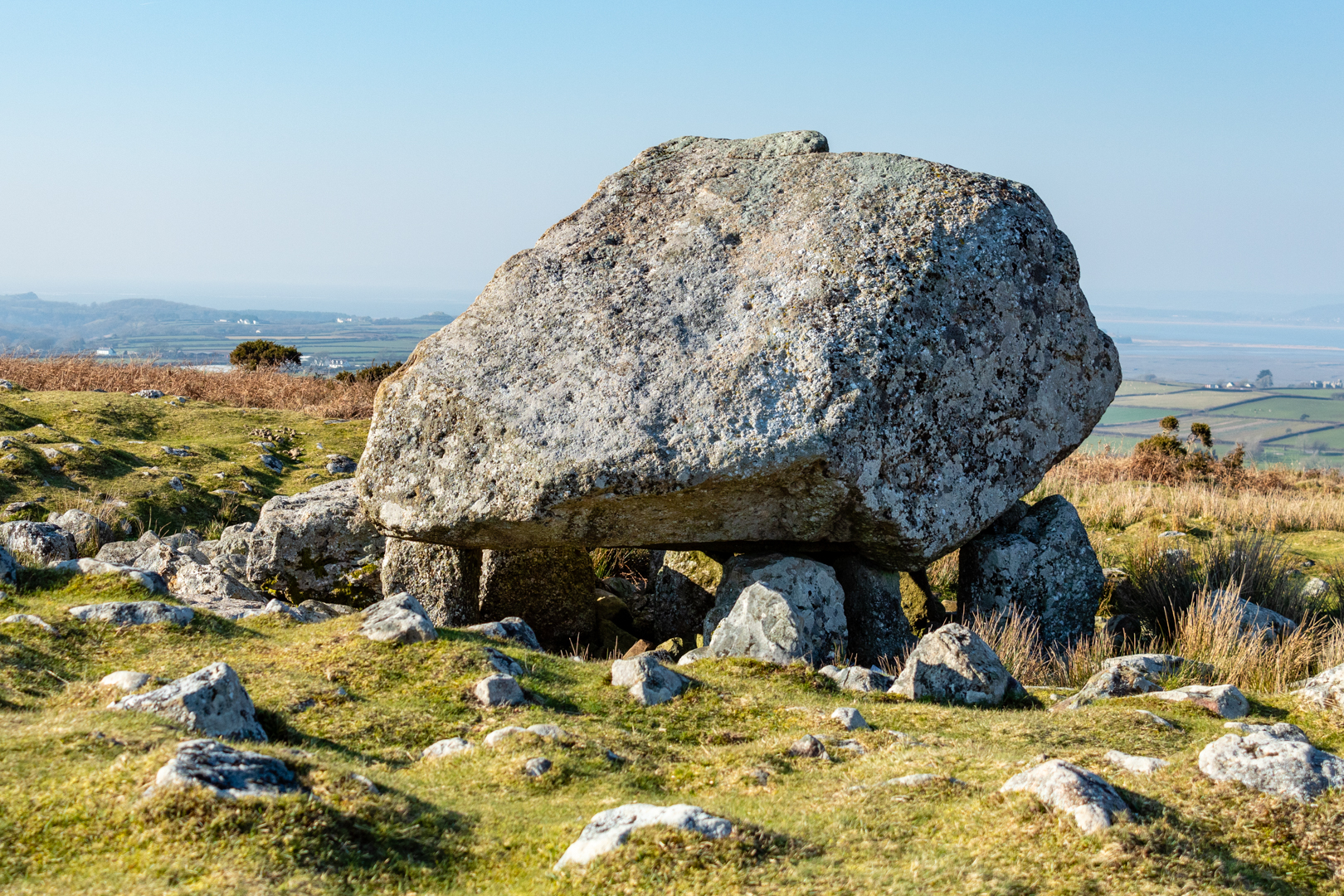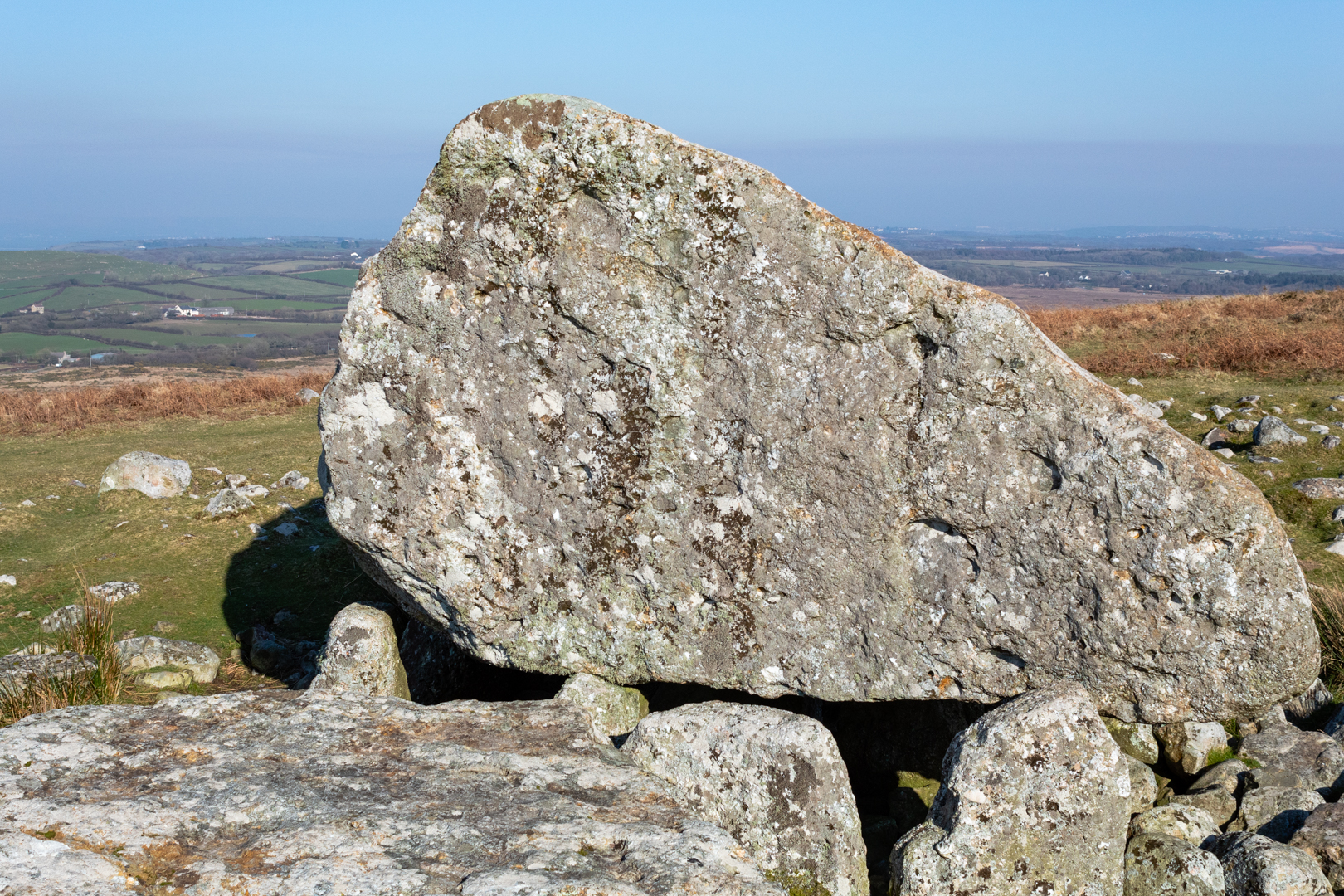Visit Date February 2019: .
Many ancient monuments have the name "Arthur's Stone, but this dolmen situated in the centre of the Gower peninsula in South Wales is mounted on top of what is a small mountain and is overlooking the mouth of the River Loughor and onto Carmarthen Bay.
This Neolithic burial site is known locally as Maen Ceti or the Stone of Ceti.
The Site dates back at least to 2500 BC and possibly even earlier.
The capstone of a quartz conglomerate has an estimated weight of 25 tons, and measures around 13 feet wide and 7 feet high. It was once larger than this, but at some time in the past, a 10-ton section of the stone broke off and now lies cracked at the side of the cairn. Legend has it that the patron saint of Wales, St. David cleaved the stone apart with his sword in protest of Druid worship.
The capstone is supported by 4 uprights although the evidence is that there may have been more originally.
This monument has been well known and well documented and was probably first mentioned in Welsh Triads of the 10th Century. In the 15th Century, it is recorded that Henry VII's (born in Pembrokeshire castle), troops, en route to the battle at Bosworth Field, made a one hundred mile detour to visit the stone. This was presumably to support Henry's claim to be the new Arthur.
Another legend relates to the Dolmens English name, Arthur's Stone, and tells how King Arthur while marching to the Battle of Camlann, found a pebble in his shoe, Tossed it aside and the stone grew with pride to it's current size.
Like many of these legends relating to this type of megalith, it is also said that the capstone travels down to the estuary on New Year's Eve to drink from the river.
Maen Ceti was once referred to as one of “the three arduous undertakings accomplished in Britain.” the other two being Stonehenge and Silbury Hill.
Close by, just a few hundred metres to the west of Maen Ceti there is another mound that could be the site of another Cairn.
Footer:
Visit Information:-Google Reference:-
51.59352460633934, -4.1793914504919405
What Three Words reference:-
///quitter.sandpaper.bearable
51.59352460633934, -4.1793914504919405
What Three Words reference:-
///quitter.sandpaper.bearable
SS 49134 90547 Altitude: 482 ft
Additional information.
Visiting is easy as it is alongside the B4271 out of Reynoldstown on the Gower peninsular. I visited by parking close by and there is a car park near the start of the walk (51.588877417146136, -4.180022525744314).
Although the site can't be seen from the road walk North from the car park along the country path and after a short while the site will come into view.
There are wild horses here on the common and they are friendly and not wary of people but take care.
.





Nothing like a good legend. Love the New Year's Eve one!!
ReplyDelete